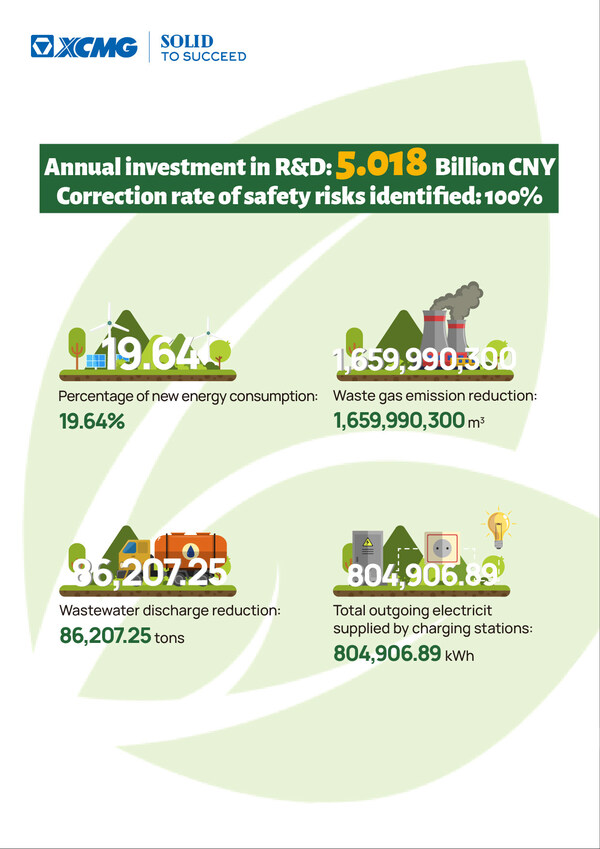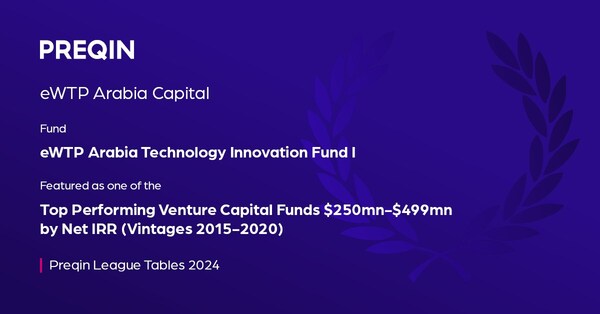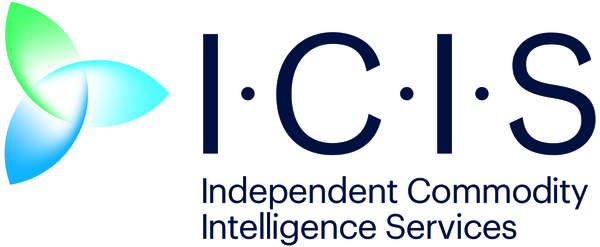Head-to-head Superiority to High-dose Dulaglutide: Innovent’s First Phase 3 Clinical Trial of Mazdutide in Chinese Patients with Type 2 Diabetes Met Study Endpoints
SAN FRANCISCO and SUZHOU, China, May 9, 2024 /PRNewswire/ — Innovent Biologics, Inc. (Innovent) (HKEX: 01801), a world-class biopharmaceutical company that develops, manufactures and commercializes high-quality medicines for the treatment of oncology, autoimmune, cardiovascular and metabolic, ophthalmology and other major diseases, announces that the Phase 3 clinical trial (DREAMS-2) of mazdutide (Innovent R&D code: IBI362), a glucagon-like peptide-1 receptor (GLP-1R) and glucagon receptor (GCGR) dual agonist, in Chinese subjects with type 2 diabetes (T2D) met the primary endpoint. The study results suggested that mazdutide was superior compared with dulaglutide for glycaemic control, and mazdutide also showed multiple cardiometabolic benefits in T2D patients including weight loss, blood lipid, blood pressure, serum uric acid, liver enzymes, etc.
DREAMS-2 (ClinicalTrials.gov, NCT05606913) is a multi-center, randomized Phase 3 clinical study to compare the efficacy and safety of mazdutide and dulaglutide in Chinese subjects with T2D who have inadequate glycemic control with metformin monotherapy or combination therapy of metformin with other oral drugs. The study enrolled 731 subjects to receive either mazdutide 4.0 mg, mazdutide 6.0 mg or dulaglutide 1.5 mg for 28 weeks. The primary endpoint was the change from baseline to week 28 in glycated hemoglobin (HbA1c) levels. The study used a non-inferiority design, and further superiority testing was performed after non-inferiority was achieved.
The primary endpoint was successfully met, showing a robust glucose-lowering efficacy of mazdutide
After 28 weeks of treatment, mazdutide 4.0 mg and mazdutide 6.0 mg showed non-inferiority to dulaglutide 1.5 mg in terms of improvement in HbA1c level from baseline. Based on these results, the superiority test was further performed, and both mazdutide 4.0 mg and 6.0 mg achieved superiority to dulaglutide 1.5 mg.
The key secondary endpoints showed mazdutide’s superior benefits in both glucose-lowering and weight loss
Statistical superiority was achieved in the following endpoints in both mazdutide 4.0 mg and mazdutide 6.0 mg groups after 28 weeks of treatment, including the change from baseline in HbA1c (superiority), percent change from baseline in body weight, proportion of subjects with HbA1c < 7.0% and weight loss of ≥ 5%, and proportion of subjects with HbA1c < 7.0%*.
Mazdutide showed comprehensive benefits beyond glucose-lowering and weight loss in multiple cardiometabolic indicators (blood pressure, blood lipids, serum uric acid, and liver enzymes)
Mazdutide also showed significant advantages compared with dulaglutide in various indicators, including the proportion of subjects with HbA1c ≤ 6.5%, changes in fasting blood glucose and seven-point fingerstick blood glucose from baseline, the proportion of subjects with body weight loss of ≥ 5% and ≥ 10%, absolute change in body weight from baseline, waist circumference, body mass index (BMI), systolic blood pressure (SBP), triglyceride (TG), serum uric acid (UA), alanine aminotransferase (ALT) and aspartate aminotransferase (AST), etc.
Favorable safety and tolerability profile
- Gastrointestinal adverse reactions were the most common adverse events, most were mild to moderate in severity , transient, and mainly occurred during the first 12-week titration period.
- No severe hypoglycemia occurred; the incidence of moderate or severe hypoglycemia was comparable to that of dulaglutide; and the incidence of hypoglycemia was lower in indirect comparison to reported in registrational studies of other GLP-1 drugs.
- No signal of increased cardiovascular risk throughout the treatment period, similar to dulaglutide.
- The overall safety profile was consistent with that observed in previous clinical studies of mazdutide and no new safety signals observed.
Mazdutide is the first GLP-1R/GCGR dual agonist in the regulatory review status, with the first new drug application (NDA) for chronic weight management under review by the Center for Drug Evaluation (CDE) of the National Medical Products Administration (NMPA). DREAMS-2, as one of the registrational clinical studies of mazdutide, will provide high-quality evidence of mazdutide for Chinese population with T2D. Innovent plans to read out the results of another DREAMS-1 Phase 3 clinical study in mid-2024 and submit to the CDE an NDA for the treatment of T2D with mazdutide. Detailed data from the DREAMS-1 and DREAMS-2 studies will be further analyzed and published at academic congresses or in clinical journals.
Professor Lixin Guo, the principal investigator of the clinical study, Department of Endocrinology in Beijing Hospital, said: “In China, T2D patients often have a variety of chronic diseases as comorbidities, such as obesity, hyperlipidemia, coronary heart disease, hypertension and so on. Therefore, the management of T2D should take into consideration the improvements in blood glucose, blood lipid, blood pressure and other aspects. In endocrine and CVM areas, GLP-1-based drugs are the hotspot of research and development for the healthcare industry as well as for clinicians, especially multi-target drugs that are potentially more efficacious and can provide more metabolic benefits. DREAMS-2 is the first Phase 3 clinical study head-to-head with dulaglutide in China, which has high clinical significance and academic value. The results of this study showed that mazdutide, compared with dulaglutide, has a stronger glycaemic lowering effect and favorable safety profile. More importantly, mazdutide provided more comprehensive benefits in weight loss, blood lipid, blood pressure, blood uric acid, liver enzymes and other aspects. I look forward to the NDA submission of mazdutide in T2D, and wish it to benefit hundreds of millions of diabetic patients in China.”
Professor Yang Wenying, the principal investigator of the clinical study, Department of Endocrinology in China Japan Friendship Hospital, said: “China has the largest number of T2D patients in the world, and the prevalence of T2D among adults in China has reached 11.9%. Together with other investigators of the DREAMS-2 study, I am pleased to see that mazdutide, as a new generation of GLP-1R/GCGR dual target agonist, has met the primary endpoint and demonstrated superiority in change from baseline in HbA1c and multiple metabolic benefits compared with dulaglutide. DREAMS-2 is a landmark study as it is the first successful registrational study of a GLP-1R/GCGR dual target agonist in T2D. I believe that in the near future, mazdutide will provide a new and better choice for the treatment of type 2 diabetes in China.”
Dr. Lei Qian, Vice President of Clinical Development of Innovent, said: “There is a huge population of diabetes in China. Innovative drugs that are more effective, safer and more convenient are urgently needed. In the DREAMS-2 study, mazdutide showed comprehensive superiority to dulaglutide, one of the most-described glucose-lowering drugs in the world. We will further analyze the study data, and strive to submit an NDA for T2D as soon as possible this year, so as to help more Chinese T2D patients to achieve target blood glucose levels and acquire metabolic benefits. At the same time, we look forward to the performance of mazdutide in the DREAMS-3 study, a head-to-head study with semaglutide.”
About Diabetes
According to the global overview of diabetes published by the International Diabetes Federation in 2021, China ranks first in the number of patients with diabetes globally, with an estimated number of more than 140 million in 2021 and 174 million in 2045 [1]. Poor glycemic control can lead to irreversible microvascular and macrovascular complications, such as decreased visual acuity, blindness, renal dysfunction, peripheral neuropathy, myocardial infarction, stroke and amputation [2]. The high incidence of diabetes, with serious complications, are of serious threat to human health. At present, there are many therapeutic regimens for diabetes. In addition to effectively controlling blood glucose, the development of new hypoglycemic drugs has begun to include the additional benefits of weight loss, cardiovascular risk reduction and kidney protection for patients with diabetes [3].
About Mazdutide (IBI362)
Innovent entered into an exclusive license agreement with Eli Lilly and Company (Lilly) for the development and potential commercialization of OXM3 (also known as mazdutide), a GLP-1R and GCGR dual agonist, in China. As a mammalian oxyntomodulin (OXM) analogue, in addition to the effects of GLP-1 receptor agonists on promoting insulin secretion, lowering blood glucose and reducing body weight, mazdutide may also increase energy expenditure and improve hepatic fat metabolism through the activation of glucagon receptor. Mazdutide has demonstrated robust weight loss and glucose-lowering effects in clinical studies, as well as multiple cardio-metabolic benefits, including reducing waist circumference, blood lipids, blood pressure, blood uric acid, liver enzymes, liver fat content and improving insulin sensitivity. Currently, a total of five Phase 3 registrational studies are underway, including GLORY-1 (4 mg and 6 mg) in Chinese overweight or obese subjects, GLORY-2 (9 mg) in Chinese obese subjects, DREAMS-1, DREAMS-2, and DREAMS-3 (mazdutide in subjects with type 2 diabetes). Among them, GLORY-1 study and DREAMS-2 study have reached the endpoints.
About Innovent
Innovent is a leading biopharmaceutical company founded in 2011 with the mission to provide high-quality biologics that are affordable to all. The company discovers, develops, manufactures and commercializes innovative medicines that treat some of the most intractable diseases. Its pioneering therapies treat cancer, cardiovascular and metabolic, autoimmune and eye diseases. Innovent has 10 products in the market, 3 new drug applications under the NMPA review, 5 assets in Phase III or pivotal clinical trials and 18 more molecules in early clinical stage. Innovent partners with over 30 global healthcare leaders, including Eli Lilly, Roche, Sanofi, Adimab, Incyte and MD Anderson Cancer Center.
Guided by the motto, “Start with Integrity, Succeed through Action,” Innovent maintains the highest standard of industry practices and works collaboratively to advance the biopharmaceutical industry so that first-rate pharmaceutical drugs can become widely accessible. For more information, visit www.innoventbio.com, or follow Innovent on Facebook and LinkedIn.
Statement: Innovent does not recommend the use of any unapproved drug (s)/indication (s).
* Note: This is based on efficacy estimand. The study used efficacy estimand and treatment-regimen estimand for statistical analysis, and they showed a high degree of concordance in the conclusions.
Forward-looking statement
This news release may contain certain forward-looking statements that are, by their nature, subject to significant risks and uncertainties. The words “anticipate”, “believe”, “estimate”, “expect”, “intend” and similar expressions, as they relate to Innovent Biologics (“Innovent”), are intended to identify certain of such forward-looking statements. The Company does not intend to update these forward-looking statements regularly.
These forward-looking statements are based on the existing beliefs, assumptions, expectations, estimates, projections and understandings of the management of the Company with respect to future events at the time these statements are made. These statements are not a guarantee of future developments and are subject to risks, uncertainties and other factors, some of which are beyond the Company’s control and are difficult to predict. Consequently, actual results may differ materially from information contained in the forward-looking statements as a result of future changes or developments in our business, the Company’s competitive environment and political, economic, legal and social conditions.
The Company, the Directors and the employees of the Company assume (a) no obligation to correct or update the forward-looking statements contained in this site; and (b) no liability in the event that any of the forward-looking statements does not materialise or turn out to be incorrect.
References:
[1]. Sun H, Saeedi P, Karuranga S, et al. IDF Diabetes Atlas: Global, regional and country-level diabetes prevalence estimates for 2021 and projects for 2045 [published correction appeals in Diabetes Res Clin Pract. 2023 Oct; 204: 110945]. Diabetes Res Clin Pract. 2022; 183: 109119. doi: 10.1016/j.diabres.2021. 109119
[2]. Gregg EW, Sattar N, Ali MK. The changing face of diabetes complications. Lancet Diabetes Endocrinol. Published online 2016. doi: 10.1016/S2213-8587 (16) 30010-9
[3]. Nauck MA, Quast DR, Wefers J, Meier JJ. GLP-1 receptor agonists in the treatment of type 2 diabetes-state-of-the-art. Mol Metab. Published online 2020. doi: 10.1016/j.molmet.2020. 101102











